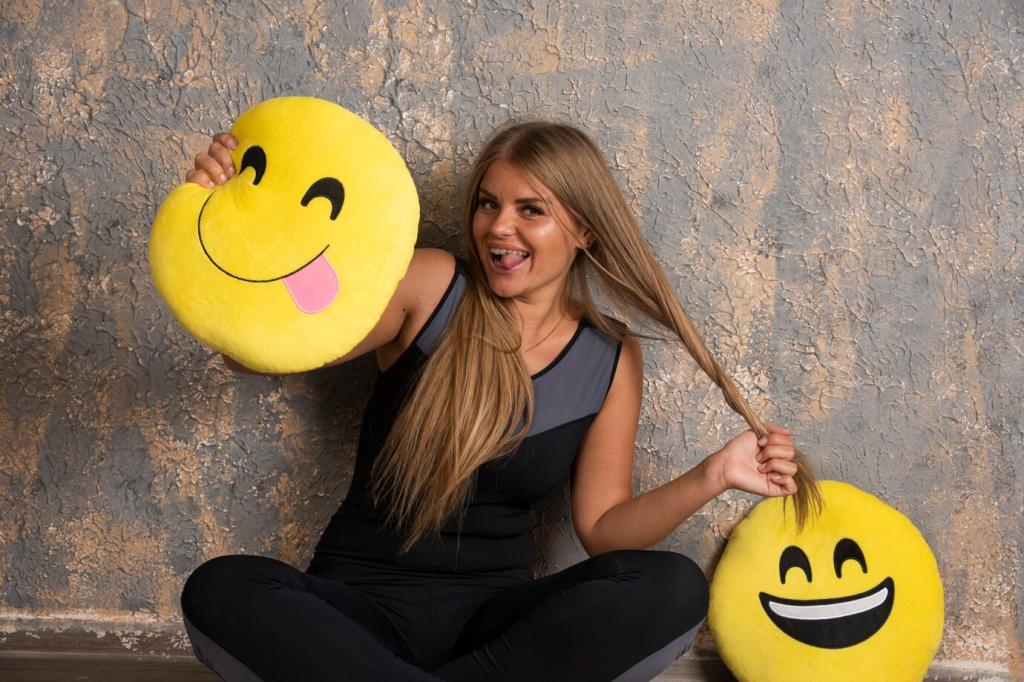
Routine Adjustments for Emotional Balance: Small Changes, Steady Calm
Chosen theme: Routine Adjustments for Emotional Balance. Welcome to a space where tiny, practical shifts add up to a steadier mood and gentler days. Explore simple, science-touched rituals, real stories, and playful experiments you can start today. Share what resonates and subscribe for weekly micro-adjustments that keep your emotional compass true.
Morning Anchors That Set Your Mood
Open a curtain or step outside for natural light, drink a full glass of water, then take six slow breaths. This trio nudges your circadian rhythm, restores overnight hydration, and steadies your nervous system for a calmer beginning.


Morning Anchors That Set Your Mood
Ask yourself, “What would make today feel emotionally balanced?” Write a single answer on a sticky note. This tiny ritual directs attention toward agency rather than urgency, shaping choices when stress tries to seize the steering wheel.

Ninety-Minute Rhythm, Five-Minute Reset
Work in ninety-minute waves, then step away for five minutes. A quick walk or stretch honors your brain’s natural ultradian rhythm, reducing irritability and decision fatigue. Try it today and tell us how your focus feels at 3 p.m.

Two-Minute Green Gaze
Look at a tree line, a plant, or even a photo of nature for two minutes. Research suggests nature views lower stress markers. This tiny pause softens mental noise and steadies emotional tone without breaking your flow.

One Kind Sentence to Yourself
When a task slips, whisper, “I’m allowed to be human, and I can take the next step.” Self-compassion reduces rumination and restores momentum. Share your go-to sentence in the comments to help someone else steady theirs.
Movement as Mood Medicine, Woven Into Routine
A gentle post-meal walk blunts energy crashes and lifts mood. One reader, Maya, found her afternoon anxiety eased simply by circling the block after lunch. Try it and report your energy curve by week’s end.
Movement as Mood Medicine, Woven Into Routine
Whenever you take stairs, name one thing you appreciate out loud. Pairing movement with gratitude anchors positivity to a reliable cue, training your brain to associate effort with emotional lift rather than strain.
Aim for a protein-forward breakfast to stabilize blood sugar and reduce mid-morning mood dips. Eggs, Greek yogurt, or tofu are simple options. Notice whether cravings and irritability lessen when your morning plate gets sturdier.
Nourishing Tweaks for Steadier Feelings
Set three hydration cues: after waking, mid-morning, and mid-afternoon. Even mild dehydration can heighten fatigue and tension. Keep a visible bottle and celebrate each checkpoint as a tiny promise kept to your emotional balance.
Nourishing Tweaks for Steadier Feelings
Evening Wind-Down for Emotional Closure
01
Screen Sunset
Pick a device-off time at least one hour before bed. Swap screens for a lamp-lit page or soothing audio. Fewer blue-light jolts support melatonin and smoother emotions the next morning, especially after stressful days.
02
Low-Light Tidy
Spend ten quiet minutes resetting your space. Order around you invites order within you. One subscriber reported fewer racing thoughts when her bedside table stayed clear; the ritual signaled safety and closure to her mind.
03
Tomorrow’s Two Priorities
Write two realistic priorities for tomorrow and one worry you are choosing to release. This simple offload reduces nighttime rumination. Tell us in the comments whether your sleep changes after three evenings of this practice.
Digital Boundaries and an Intentional Information Diet
Choose a deliberate ten-minute news window, then step away. Curate two trusted sources and resist hot-take rabbit holes. This simple boundary preserves empathy while preventing emotional overload from relentless outrage cycles.
Digital Boundaries and an Intentional Information Diet
Mute nonessential alerts and pin apps that align with your values: reading, learning, connection. Each vibration you eliminate is a micro-sigh of relief your nervous system does not need to swallow anymore.





